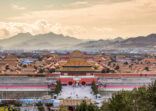The transition to renewable energy from fossil fuels may be bumpier than the market had originally expected, which will favour traditional energy companies, according to Jack Mclntyre, portfolio manager at Brandywine Global Investment Management, part of Franklin Templeton.
Speaking at the Asia Investor Forum organised by Franklin Templeton, Mclntyre believes the demand for energy will remain strong as the world’s economy transits from buying goods to using more services.
His view was echoed by Kenneth Leech, chief investment officer at Western Asset Management (part of Franklin Templeton), who sees opportunities in some “fallen angel” energy companies.
“We think the energy prices are going to be sticky for quite some time. The improvement in prices has already been meaningful,” he said.
Leech expects some upgrades in the credit ratings of energy companies and favours those which were formerly investment grade and could be re-rated soon.
Also favouring the energy sector is Sonal Desai, chief investment officer at Franklin Templeton Fixed Income.
“It is becoming abundantly clear that the world, with the best of good intentions, is not ready to make that transition to renewables. I think that we will continue to see a strengthening energy market,” she said.
Nonetheless, she recommended a bottom-up approach to evaluate the individual credit’s performance one by one, instead of betting on a single sector.
Meanwhile, Leech believes structured products have also have “some merit” in the future. For example, residential mortgage-backed securities are expected to benefit from the strong collateral value in the US.
Yet, he warned investors to be selective and company-specific when investing in structured products.
The Franklin Templeton team is also eyeing the reopening of global trade and looking at various sectors which are likely to benefit.
Michael Hasenstab, chief investment officer at Templeton Global Macro, who sees Asia as a region of opportunities, said that “the ultimate reopening of trade will take place in Asia, which has been very shut down and is now about to emerge coming out from the crisis,” he said. “In terms of sovereign analysis, the reopening is probably going to be a pan-Asia story for the next year.”

















